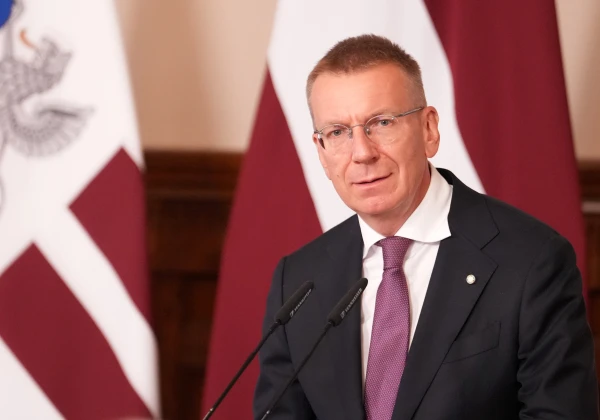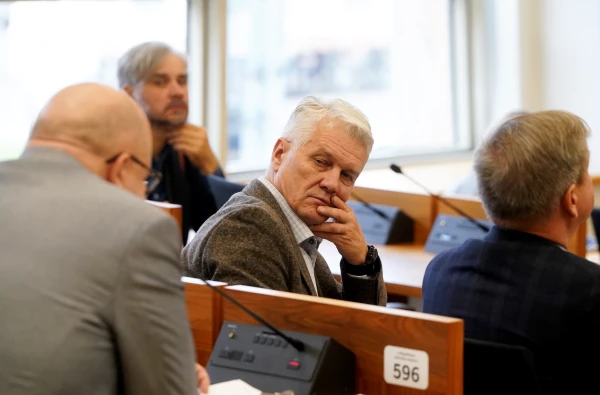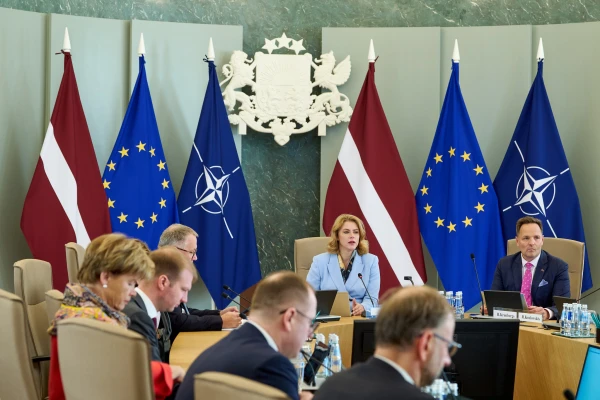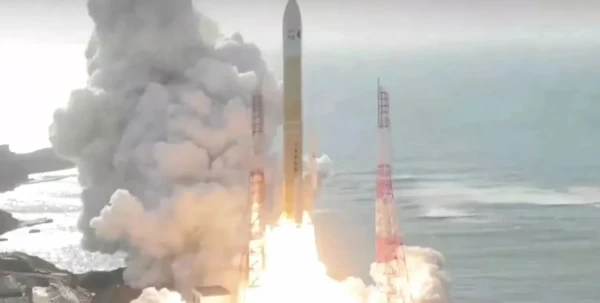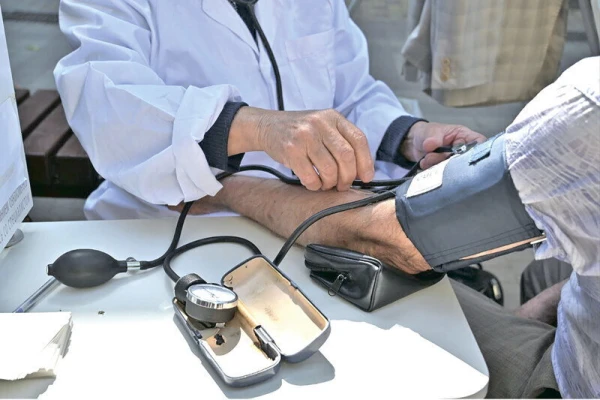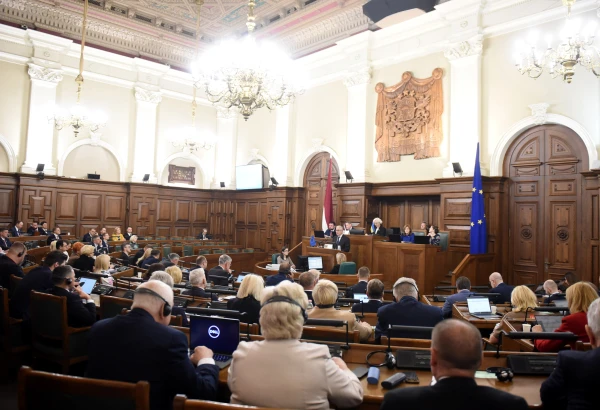
The Saeima on Thursday adopted amendments to the "Pollution" law in its second and final reading, which provide for the implementation of European Union (EU) directives regulating the activities of the emissions trading system (ETS), as well as the ETS2 system covering buildings, transport, and additional sectors, LETA reports.
The bill was supported by 51 deputies, while 42 parliamentarians voted against it.
Quorum, Delays, and Debates in Parliament
In the previous two weeks, the parliament did not make a decision on the bill as the coalition could not ensure a quorum. During several votes on the proposals related to the bill, 48 deputies voted in favor. Due to the lack of a quorum, the Speaker of the Saeima, Daiga Mierina (SZK), closed the parliamentary sessions.
Prior to this, the consideration of the bill had been postponed multiple times, and the chair of the responsible parliamentary Committee on Economic Affairs, Agriculture, Environmental and Regional Policy, Kaspars Briškens (Progressives), pointed out that clarifications were needed in the text.
Before the vote, the Minister of Climate and Energy, Kaspars Melņis (SZK), addressed the deputies. He stated that the bill does not imply the adoption of new commitments but provides an opportunity to attract additional EU funding if an entrepreneur wishes to invest in new technologies and develop the Latvian economy.
Alexander Kiršteins opposed the bill. He expressed the opinion that before the law is adopted, someone from the government should come out and explain how this law will lead to "economic growth." He also expressed confusion regarding the main goal of the bill.
Andris Kulbergs (United List) urged the Cabinet of Ministers to coordinate actions with Lithuania, Estonia, and Poland, to address Brussels, and demand a review of the situation of these countries in the context of regional security, while postponing, rather than canceling, climate goals. Edgar Tavars (United List) also noted that all resources should now be directed towards security, and achieving "green goals" should be frozen.
Minister of Climate and Energy Melņis, in a comment to the LETA agency, pointed out that Latvia, as an EU member, has no right not to apply EU directives, and if the amendments to the "Pollution" law are not adopted, the state is already facing a fine of at least 300 million euros.
He explained that three sanction procedures have already been initiated against Latvia. Moreover, for not adopting the "Pollution" bill, Latvia should already have faced sanctions, as the deadline for its adoption has been missed.
As previously reported, the Ministry of Climate and Energy (MCE) clarified that Latvia has not yet transposed the legal norms of EU directives, resulting in three infringement procedures being initiated against it. Currently, the transposition of amendments to the basic ETS directive has been delayed by more than a year, creating not only a risk of fines from the European Commission but also administrative obstacles for ETS operators and complicating the administration of the system for all involved parties.
Why the Bill is Necessary
The bill is designed to improve and update the regulation of climate policy regarding ETS in Latvia, as well as to update the content of the law in light of the reorganization of institutions. Since 2001, the law has undergone 21 amendments, resulting in the norms contained within it becoming difficult to comprehend, necessitating a structural overhaul.
The bill includes a new chapter on the EU emissions trading quota system, which covers the regulation of ETS and ETS2 activities, including conditions, requirements, permits, and obligations. Conditions related to ETS have been excluded from other chapters.
The amendments to the law also establish requirements for the activities of operators, aircraft operators, shipping companies, as well as fuel and heating fuel operators. It is established that operators must take measures to reduce greenhouse gas (GHG) emissions. To determine changes in the volume of GHG emissions, operators will be required to monitor these emissions.
The State Environmental Service (SES) will be required to determine which installations are subject to activities requiring a GHG emissions permit. If an operator operates without a valid permit, the SES will be able to issue an administrative act to cease the operation of the operator's installation within its competence.
How the New ETS2 System Will Work
The law also includes amendments regarding the implementation of ETS2 in Latvia. The system covers the consumption of fuel and heating fuel in buildings, transport, and additional sectors (industries not covered by the existing ETS). ETS2 was created by expanding ETS, and both systems share similar management principles; however, the principles of quota allocation and trading are separate. Starting from 2028, fuel and heating fuel operators will be required to transfer relevant emissions quotas to ETS2 based on the amount of fuel transferred for consumption. The volume of emissions will be determined indirectly based on the amount of fuel used that is transferred to the market.
Fuel and heating fuel operators will be fuel sellers in Latvia who transfer it for consumption and are required to obtain a GHG emissions permit issued by the SES. From the moment ETS2 is implemented, data monitoring will need to be carried out according to an individually developed monitoring plan for each operator.
The conditions for monitoring and reporting in ETS2 are based on the principles of ETS, ensuring consistency between the actions of both systems. The Cabinet of Ministers will clarify the monitoring procedures, principles for submitting and approving reports, as well as the compensation mechanism in case the same volumes of fuel are accounted for in both ETS and ETS2.
State Duty and Control
The amendments to the law also establish that a state duty is charged for the issuance and revision of a GHG emissions permit. The payers of this new duty will be ETS operators (installations) and ETS2 operators (fuel and heating fuel), which are legal entities required to obtain a permit. For the fourth period of ETS from 2021 to 2030, 52 permits have been issued for installations in Latvia (to 38 operators).
To obtain permits for ETS and ETS2, the respective operators must demonstrate that the monitoring of GHG emissions and the amount of fuel transferred for consumption allows for accurate determination of annual emissions and compliance with annual reporting requirements under ETS or ETS2.
The purpose of the duty is to ensure regulation and control of activities in the field of environmental protection. The state duty will encourage operators to prepare sufficient and necessary applications for obtaining permits. GHG emissions permits provide access to accurate information about stationary installations and activities subject to the EU ETS and ETS2 systems.
It is provided that the Cabinet of Ministers will establish a more detailed procedure and amounts for the duty. It is planned that this will be done simultaneously with the procedure and amounts for permits of categories A and B, as provided in the Law on Polluting Activities. All these state duties will be administered by the SES, and a single installation may be subject to both a category A or B permit and a GHG emissions permit. In some cases, it will be necessary to pay several duties simultaneously – for changes in a category A or B permit and for changes in a GHG emissions permit if significant changes occur in the installation.
To inform the public, the SES will ensure electronic and free access to the registers of GHG emissions permits.

